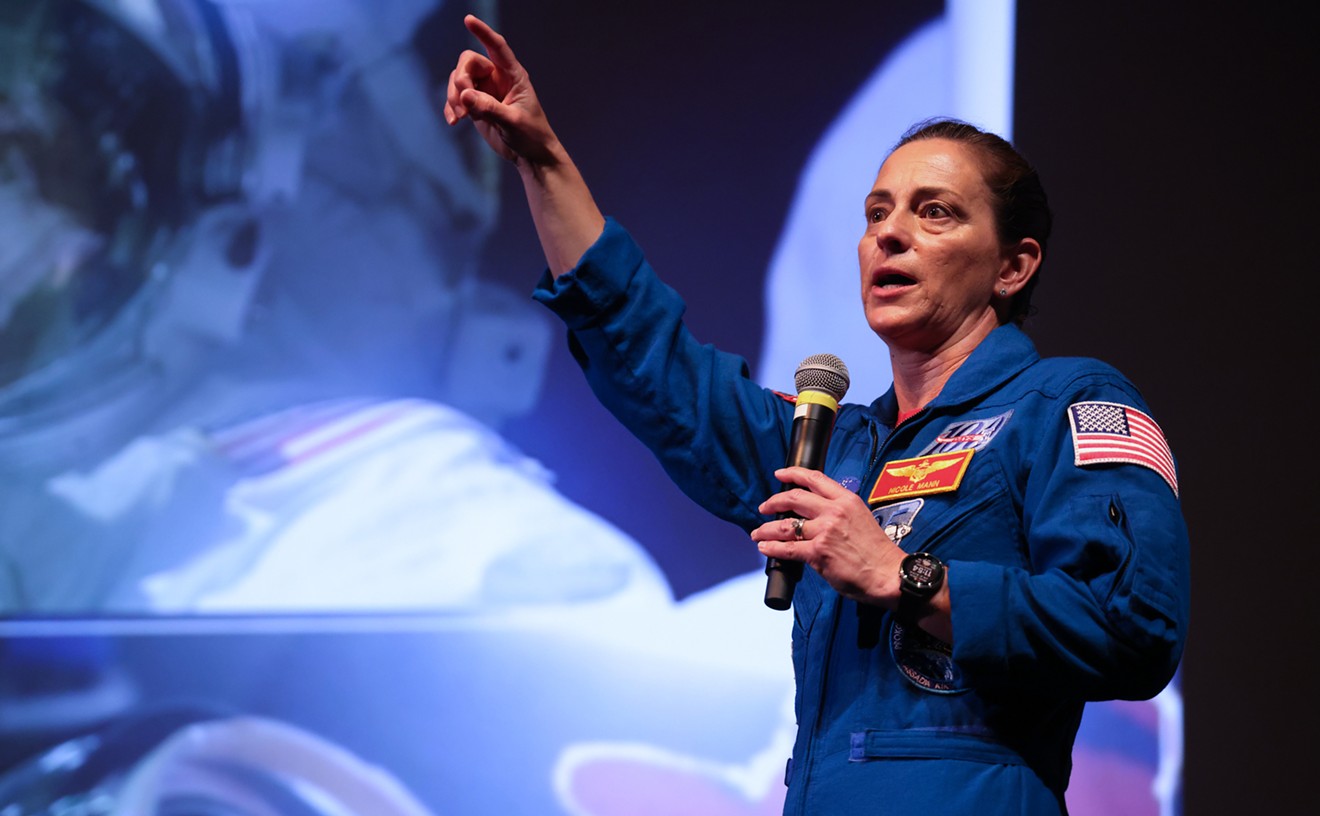The opening salvo in what ought to develop into quite a lively exchange of gunfire was sounded last week when the first "counter quincentenary celebration" arrived in Phoenix. The quincentenary, as we shall all find out only too well during the next two years, is the celebration of Columbus' discovery of America and the subsequent European settlement of it.
While historians have been debating exactly which little Caribbean island the Spanish-backed explorer reached first, a coalition of Indian, Chicano and other groups representing "indigenous peoples" have been busy objecting to the idea that they had to be discovered.
"For Native Americans, celebrating the quincentenary is tantamount to celebrating genocide," says Amalia Mesa-Bains. She is the San Francisco artist responsible for the room-sized installation at the MARS gallery at 1201 South First Avenue. Entitled "(Re)(Un)(Dis)Covering America: A Counter Quincentenary Celebration," the piece will be on display until February 8.
While the work itself is a collection of furniture, curtains and gold-painted toys that make their points indirectly, in person Mesa-Bains is more blunt. "The discovery model erases the civilizations that were here," she says. "It implies a tabula rasa, that the explorers came to a place that was empty except for savages, and that they filled it up. And now, 500 years later, we're going to take a look at that filling up."
Part of the Chicano power movement originating in the 1960s-- Mesa-Bains sat next to playwright Luis Valdez in a Romantic poetry class at San Jose State University--she is the commissioner of arts for San Francisco and works in a program to achieve court-ordered desegregation in the San Francisco public school system. Mesa-Bains has a doctorate in psychology and was part of the large "Hispanic Art in the United States" exhibition organized three years ago by the Corcoran Gallery in Washington, D.C.
For political reasons, however, she dislikes the term "Hispanic."
"`Hispanic' implies that our only common currency is our Spanish descendedness," she says. She prefers the term "Chicano," which implies an identification with an Indian past. "If you put me next to a Navajo woman, I don't look a whole lot different," Mesa-Bains says. The question is more than one of linguistics; the terms have been an issue, occasionally an acrimonious one, among Mexican-Americans for years. "The romanticization of our Spanishness is not so commonly held among artists and intellectuals," she explains. Just as dangerous as the quincentenary, however, is what Mesa-Bains calls "The Latin Boom"-- the popularity of Latin food and music, which she says, "strips away the issues of immigration and AIDS" while it popularizes more palatable aspects of the cultures to the south. "Taco Bell is a tremendous rip-off," she says. "It provides a fantasy version of our food."
Objections to the quincentenary, however, are coming from more than just Indian and Chicano groups. According to Mesa-Bains, African- American scholars have raised the possibility that there was African settlement in the New World before the forced settlement of slavery. Mesa-Bains, who is married to an African-American, says that planned quincentenary celebrations deny the African roots of such peoples.
With her artwork, she says, "I want to reassert the notion of the contributions of the cultures existing in the period before the conquest."
The quincentenary, Mesa-Bains thinks, is a good time for Americans to deal with another issue. "I think people have got to face the fact that this is not going to continue to be an English-only country," she says. "If I were raising a kid in this country now, I'd be sure he learned Spanish--and Japanese."










